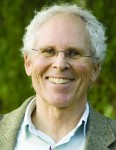Citizens’ Climate Lobby Launches Laguna Chapter

We’re just folks not willing to remain still. Moms, dads, grandparents, a retired UC Irvine physics professor, a few psychologists and lawyers, a recent UCLA graduate, a retired oil company businessman, the wife of a former Laguna Beach mayor, a former union leader in the Irvine school district, a retired history professor, the president of the Laguna Beach Democratic Club, a Laguna Ocean Foundation board member, and others like these are determined to see that government responds to the climate crisis.
On a recent Saturday morning, 22 of us who live in Laguna Beach and Laguna Niguel decided to act together. We’re responding to the 2018 warning from the UN’s Intergovernmental Panel on Climate Change that humanity has 12 years to prevent the planet’s temperature from rising more than 1.5 degrees Centigrade above preindustrial times. Beyond that threshold, preeminent IGCC climate scientists tell us, the nightmarish consequences of global warming will be unavoidable. Our response was to launch the first meeting of the Laguna Chapter of Citizens’ Climate Lobby.
CCL is an international civic sector organization, based in California, with 548 chapters in and outside the United States. It advocates for Congressional passage of the Energy Innovation and Carbon Dividend Act (HR 763), now before the House and Senate. The bipartisan measure would put a price on carbon by imposing a fee at refineries, wells, and ports that would increase the price of petroleum at the pump, promote technological innovation, save lives that otherwise would be lost to breathing polluted air, and generate 2.1 million green jobs while reducing carbon emissions 40 percent below preindustrial levels in 12 years and 90 percent by 2050. These claims are supported by economists who produced the Regional Economic Models Inc. Report of 2014-15. Proceeds from the carbon fee would be returned to the people in monthly dividend checks that would help most low-income families handle the rising cost of petroleum. We realize that passage of this measure, by itself, will not solve the climate emergency, but it is a necessary and hugely important first step. As a chapter of CCL, our job is to help build the public will to gain passage of this bill.
In addition to some of us lobbying Congress twice a year in Washington, D.C., we’ll reach out to local public officials, business organizations, religious groups, students, and others to get political action. The public is convinced that the planet is warming, and humans are the main cause of this; the politicians, however, are dragging their feet on policy implementation to address the climate crisis. According to the Yale Program on Climate Change Communication in 2018, 70 percent of polled Americans believe the earth is getting warmer; 57 percent of them say humans are the major cause. These numbers represent quite an uptick from 10 years ago. Still, neither major party in recent times has done much to address the issue that some say puts civilization as we know it at risk.
Instead of waiting for the major parties to act, citizen groups—including CCL and numerous others—are building a public will to move our government and society sufficiently beyond our carbon-based economy to afford young people and coming generations a real prospect of a future. Losing no time, three members of our chapter did a radio interview the day after our inaugural meeting; we discussed what our group was about on Tom Joliet’s “Laguna Tropical Surf” program on KX 93.5 FM.
If you want to be part of the solution and act while time remains, please go to the Citizens’ Climate Lobby website: citizensclimatelobby.org, to learn more and then contact me: [email protected].
What can one local group of committed citizens do to get urgently needed political action? We’re about to find out.
Tom Osborne, a retired history professor, chaired the work group that wrote Laguna Beach’s 2009 Climate Protection Action Plan. He’s published four books and is currently writing an account of how California emerged as America’s leading environmental state.




